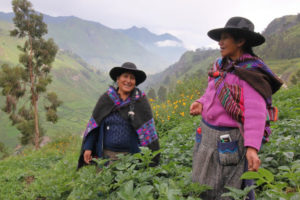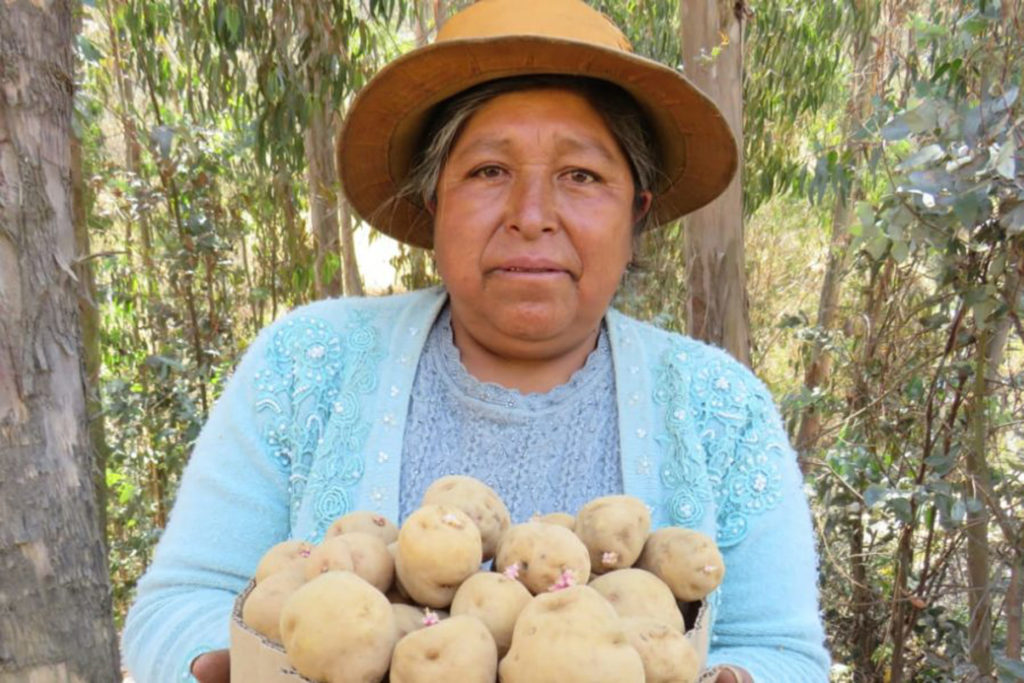The International Potato Center uses wild crop relatives to develop a late blight-resistant potato variety
Article courtesy of Crop Trust and www.croptrust.org, “Securing our Food, Forever”

Potatoes are grown all around the world, and almost everywhere, they are threatened by late blight, a wind-borne disease that can destroy a field of plants in a matter of weeks.
Though this disease is widely controlled with agrochemicals, millions of farmers are unable to afford or apply them as often as needed, resulting in about $14 billion in crop losses annually, primarily in developing countries.
However, Peruvian farmers will soon have a new option for dealing with this devastating disease as the International Potato Center (CIP, founded in 1971 as a research-for-development organization focusing on potato) prepares to release a potato variety with almost complete resistance.
This new potato, called CIP-Matilde, is the product of a breeding effort that crossed wild potatoes with cultivated ones to produce commercially viable potatoes able to withstand late blight.
It is a result of a long-term effort to preserve, study and use the potato’s wild relatives in breeding supported by the Crop Trust through its Crop Wild Relatives Project, a global initiative to adapt agriculture to climate change.
The project makes all its products available to others under the rules of the Plant Treaty, an international agreement to foster the conservation and sustainable use of crop diversity.



